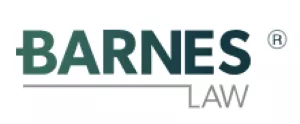- within Litigation and Mediation & Arbitration topic(s)
- in United States
- with readers working within the Chemicals, Property and Securities & Investment industries
- within International Law, Technology and Real Estate and Construction topic(s)
- with Finance and Tax Executives
In the landmark judgment Korek Telecom v Iraq Telecom [DIFC Court of Appeal, 2025], the DIFC Court confirmed the application of the Foreign Act of State doctrine in DIFC law. However, it held that the doctrine did not prevent the enforcement of the US$1.6 billion ICC award from the long-running telecoms dispute in Iraq. This decision reinforces the DIFC's pro-arbitration stance and highlights its ability to integrate international doctrines while keeping arbitration outcomes secure.
Dispute Background
This dispute arose in 2011, from Iraq Telecom's investment of nearly US$800 million in Korek Telecom, securing 44% of the shares. In 2014, Iraq's Communication and Media Commission (CMC) ordered the transfer of those shares back to Iraqi shareholders, a move Iraq Telecom alleged was procured through bribery and unlawful pressure orchestrated by Korek and its Chairman, Sirwan Saber Mustafa.
An ICC tribunal with its seat in the DIFC found Korek and others liable for unlawful means conspiracy, awarding Iraq Telecom approximately US$1.6billion in damages. Korek sought to resist the enforcement of this award by appealing in the DIFC courts, relying on doctrines of sovereignty, public policy, and Article 8A of the DIFC Application Law.
This was a significant development, as it is now clear the DIFC courts recognise the doctrine, within defined and appropriate limits.
Legal Framework and Court Response
For the first time, the DIFC explicitly recognised the application of the Foreign Act of State doctrine as a part of DIFC law. This doctrine prevents courts from questioning the validity of sovereign acts of foreign states, excluding sovereign acts from the purview of the DIFC.
Korek argued that because the arbitral award relied on the CMC's decision to transfer shares, the doctrine barred enforcement of the award. The court expressly disagreed. It found the tribunal and the DIFC courts were not being asked to determine the validity of the CMC's sovereign act. Rather, the issue was whether the private parties had influenced an act through corruption and unlawful conduct. Therefore, the doctrine did not apply in this case.
Article 8A and Retrospective Application
Korek also relied on Article 8A of the amended DIFC Application Law, introduced in November of 2024. The law sets out circumstances in which the DIFC courts may refuse recognition or enforcement of foreign arbitral awards.The appellants argued this should apply to their case.
However, the Court of Appeal rejected this, holding that Article 8A has no retrospective, ex post facto effect. The enforcement proceedings were already in progress before the amendment came into force; therefore, the provision could not be relied upon. This reaffirmed the Court's commitment to legal certainty and resisting appeals after the fact due to legislative changes.
Arbitration and Integration
The Court also dismissed the arguments based on public policy and evidentiary concerns. Appeals that the tribunal admitted hearsay or improperly obtained evidence were rejected. The court reiterated that corruption is directly antithetical to public policy and cannot be used as a shield to avoid liability for any wrongdoing.
By rejecting these challenges, the DIFC reaffirmed the pro-arbitration stance it holds, not allowing technical objections to undermine arbitral awards, especially where wrongdoing has been proven. This decision aligns the DIFC with other leading arbitration centres, such as London and Singapore, in its pro-enforcement approach.
Moreover, the recognition of the Foreign Act of State doctrine reflects the DIFC's willingness to draw on established common law principles and to apply them consistently within the integrity of arbitration. This strengthens the DIFC's identity as a hybrid, internationally minded jurisdiction.
Key Takeaways
- The DIFC Court of Appeal confirms Foreign Act of State Doctrine as part of DIFC law.
- The doctrine did not prevent enforcement of a US$1.6bn ICC award, as the case concerned corrupt conduct rather than the validity of an Iraqi sovereign act.
- Article 8A of the DIFC Application Law does not apply retrospectively.
- The DIFC judgment reinforces a pro-arbitration, pro-enforcement stance.
- The judgment illustrates the DIFC's ability to integrate international doctrines responsibly, without allowing them to frustrate arbitration outcomes.
Conclusion
The Korek v Iraq Telecom judgment is a landmark win for arbitration in the DIFC. By confirming the Foreign Act of State Doctrine, the Court showed it will integrate international principles without compromising arbitration outcomes. Accordingly, with Article 8A, the Court confirmed that it is part of the DIFC's legal framework going forward, but it cannot be weaponised retrospectively to undo any ongoing enforcement proceedings.
Together, these rulings underscore a powerful message. The DIFC is firmly pro-arbitration, pro-enforcement, and investor-friendly. It is a jurisdiction that embraces international legal principles while making sure arbitral awards remain rock-solid.
The content of this article is intended to provide a general guide to the subject matter. Specialist advice should be sought about your specific circumstances.


